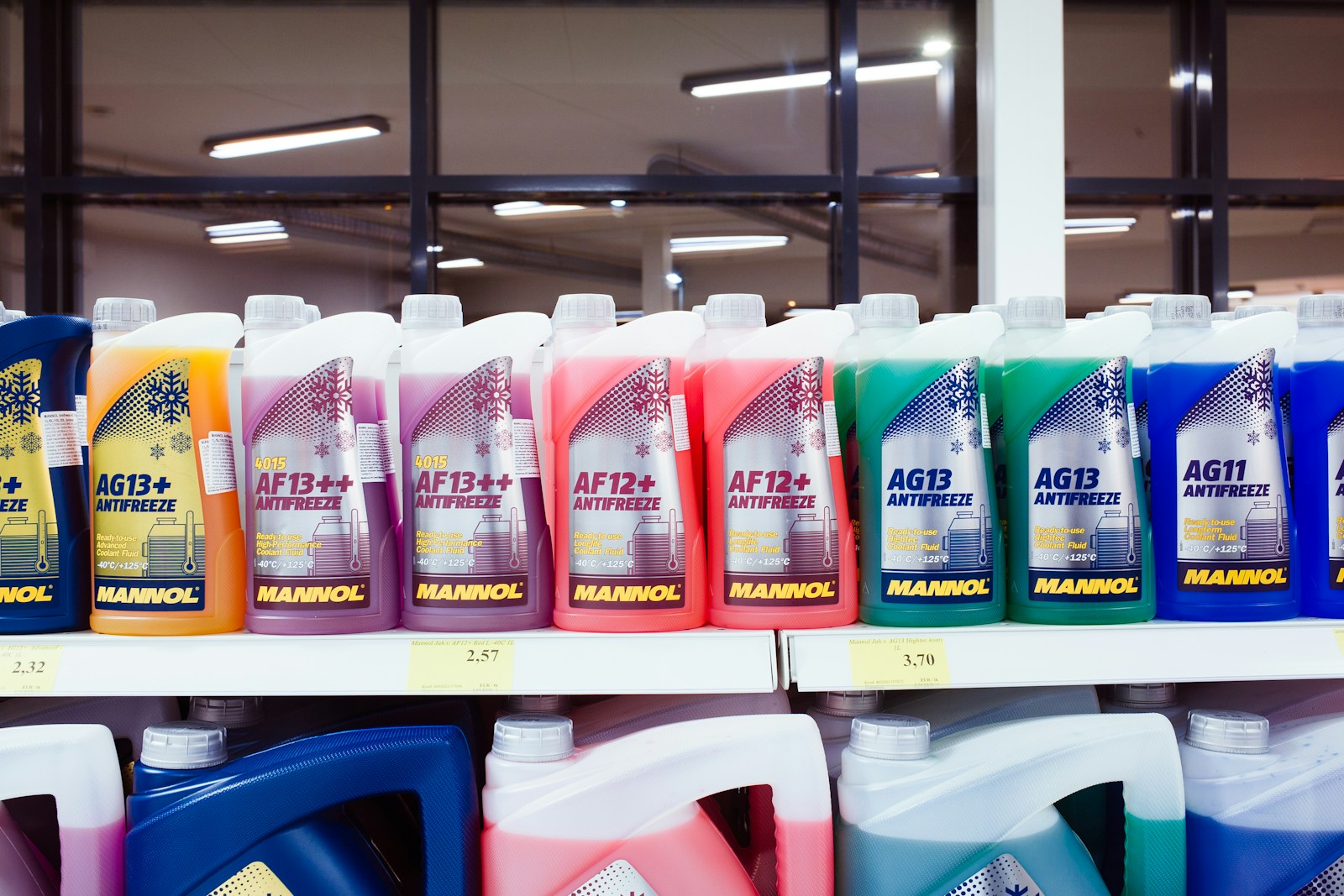No! It is not safe to pour antifreeze down a drain. Antifreeze is a liquid chemical used to prevent freezing and overheating in engines. It must be handled with care due to its toxic nature. The primary ingredient in antifreeze is ethylene glycol, which can cause significant harm to humans, animals, and the environment if not disposed of correctly. To safeguard our surroundings, it’s essential to understand the proper methods of antifreeze disposal rather than resorting to methods like pouring it down the drain, which can lead to widespread contamination and potentially severe ecological impacts.
When it comes to the disposal of antifreeze, standard procedures established by environmental authorities should be followed. Since antifreeze contains harmful substances, the Environmental Protection Agency (EPA) strictly regulates its disposal to prevent pollution of waterways and land. Drains are connected to either septic systems or sewage treatment plants, neither of which is designed to handle the toxic components found in antifreeze. Thus, introducing this chemical into the water system can lead to penalties and more importantly, a risk to public health and wildlife.
Never Dispose of Antifreeze Down the Drain
Antifreeze is toxic to humans, animals, and the environment. The primary ingredient in most antifreeze is ethylene glycol, a sweet-smelling substance that attracts animals. Unfortunately, it’s also highly poisonous. Even small amounts can cause kidney failure or death.
Pouring antifreeze down the drain allows it to reach waterways, where it harms wildlife and the ecosystem. It can also contaminate drinking water supplies.
Where to Dispose of Antifreeze
So, what do you do with used antifreeze? Here are some safe and responsible disposal methods:
| Disposal Method | Description |
|---|---|
| Recycling Centers | Many communities have recycling centers that accept antifreeze. |
| Auto Parts Stores | Some auto parts stores take old antifreeze for recycling. |
| Household Hazardous Waste Sites | These facilities handle various hazardous materials, including antifreeze. |
Tips for Safe Antifreeze Disposal
- Store used antifreeze properly: Collect old antifreeze in a sturdy, leak-proof container. Label it clearly to avoid confusion.
- Never mix with other substances: Mixing antifreeze with other liquids complicates disposal and can make it more hazardous.
- Check local regulations: Your city or county may have specific guidelines for antifreeze disposal. You can find information on your local government’s website.
Don’t take a risk with antifreeze disposal. Choose a safe and responsible method to protect yourself, your pets, and the environment.
Key Takeaways
- Antifreeze contains ethylene glycol, a toxic agent.
- It is unsafe and illegal to pour antifreeze down the drain.
- Proper disposal methods are crucial for environmental protection.
Antifreeze Disposal and Environmental Impact
Antifreeze is crucial for an engine, but its disposal holds significant environmental stakes. The substance is toxic and can harm both wildlife and ecosystems if not handled with care.
Proper Disposal of Antifreeze
Recycling is the recommended method for disposing of antifreeze. Antifreeze, often containing ethylene glycol, is a toxic chemical that poses a threat to the environment. Recycling centers and hazardous waste facilities are equipped to handle it safely. Some service stations also offer recycling services. Properly recycling antifreeze ensures that it does not contaminate landfills and prevents the release of heavy metals and additives into the environment.
- Do: Take antifreeze to a recycling center or hazardous waste facility.
- Do Not: Pour antifreeze down the drain, on the ground, or into a septic system.
Risks of Improper Antifreeze Drainage
Pouring antifreeze down the drain or onto the ground can lead to contamination of water sources. This is harmful to animals, pets, and can damage ecosystems due to the toxic chemicals such as methanol, ethylene glycol, and heavy metals found in antifreeze. Spills should be avoided, and immediate action should be taken to contain and clean any accidental releases. According to the EPA, improper disposal of engine coolant can lead to serious environmental damage.







